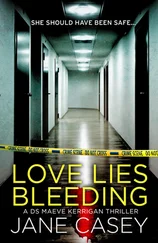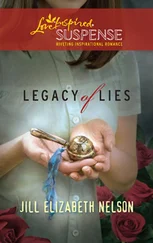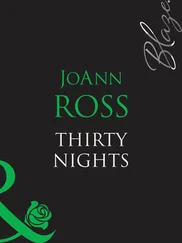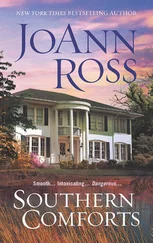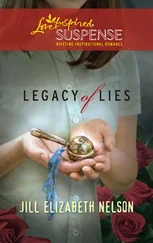She’d heard that accusation before. But never had it stung so badly. “I was trying to be innovative. Like Chanel in the twenties with her tweed suits. And Dior’s postwar New Look. The sixties’ revolution, when Yves Saint Laurent introduced the pantsuit. And of course, Courreges’s minidress.”
She took a deep breath. “You just said that couture was about risk. All the great designers—Norell, Beene, you yourself—have gained fame by insisting on having a spirit of their own.”
“You have talent, but you do not understand couture,” he countered. “A designer must see women as they want to be seen.”
“That’s true,” Alex conceded, even as it crossed her mind that, instead of telling women what they want, designers should ask them what they want.
Patience, she could hear her mother warning her.
“This design, for example.” He held up a sketch that happened to be one of her favorites. An evening gown of tiered gold lace over black chiffon, cut like a Flamenco dancer’s dress. “This gown would make a woman look as if she were dressing for an American Halloween party.”
That hurt. “I can’t see what’s wrong with thinking of life as a party.” Patience. “Besides, I thought it was sexy.”
“The first thing you must learn, Alexandra, is that husbands want their women to look like ladies. Especially American husbands, who have a habit of marrying younger and younger brides without really knowing their pedigree.”
He ignored Alex’s sharp intake of breath. “Since the husbands are the ones paying the bills, a wise couturier designs with them in mind.”
“That’s incredibly chauvinistic.”
“Perhaps. It is also true. The British have a saying,” Debord continued. “Mutton dressed as lamb. Never forget, Mademoiselle Lyons, that is precisely what we are paid to do.”
“But what about celebrating the female form—” Alex couldn’t help argue “—instead of focusing on androgynous, sexless women?” When he physically bristled, Alex realized she’d hit uncomfortably close to home with that one. After all, Debord’s disastrous new line had carried androgyny to new extremes.
His stony expression would have encouraged a prudent woman to back away. Unfortunately caution had never been Alex’s forte.
“You say we must design for the husbands,” she said, leaning forward. “I can’t believe any man really wants his woman looking like a malnourished twelve-year-old boy.”
“Not all men do,” Debord acknowledged, his steady gaze taking in the softly feminine curves her stark black dress and scarlet jacket could not entirely conceal. “But the fact remains, Alexandra, wives should look like ladies. Not sirens.”
In Alex’s mind, there was absolutely nothing wrong with looking like a lady in the daytime and a siren at night. After all, this was a new age. Having proven they could do men’s work, Alex believed it was time women started looking like women again.
“May I ask a question?” she said quietly.
“Certainement.”
“How can you consider me talented when you hate everything about my designs?”
“On the contrary, I don’t hate everything about them. I love the energy, the verve. I think your use of color, while overdone, is magnifique.”
“Well,” Alex decided on a rippling little sigh, “I suppose that’s something.”
“It’s important.” He stood and smiled down at her. “It is time we found a proper outlet for your talents.”
“Do you mean—”
“I’m promoting you to assistant designer,” Debord confirmed. “I shall inform Marie Hélène that you will be moving upstairs. Immediately.”
Joy bubbled up in Alex. It was all she could do to keep from jumping up and flinging her arms around Debord’s neck. She knew the broad grin splitting her face must look horrendously gauche, but couldn’t keep herself from smiling.
“I don’t know how to thank you, monsieur.”
“Just do your best. That is all I expect.” Debord walked her to the door.
Feigning indifference to Marie Hélène’s cold stare, Alex moved her colored pencils and sketch pads into the design office located above the showroom floor.
She was hard at work at her slanted drawing table later that afternoon when Debord entered the office. He made his way slowly around the room, offering a comment on each designer’s work. Some were less than flattering, but all were encouraging. Until he got to Alex.
“A zipper is inappropriate,” he declared loud enough for everyone in the room to hear. His finger jabbed at the back of her evening gown design. “This gown lacks spirit.”
He plucked the slate pencil from her suddenly damp hand and with a few deft flourishes, sketched in a row of satin-covered buttons. “There. Now we have passion.”
The buttons running from neckline to hem were admittedly lovely. They were also highly impractical. Alex wondered how a woman would be able to wear such a dress without a maid to fasten her up. And then there was the little matter of getting out of the gown at the end of the evening.
“It would seem to me,” she countered mildly, “that trying to deal with fifty tiny, slippery satin buttons running down the back of a dress would tend to stifle passion.”
There was a gasp from neighboring tables as the others in the room realized that this newcomer had dared argue with the master. Debord shot her a warning look.
“The way couture differs from ready-to-wear is in the decorating,” he said shortly. “Specialness comes from the shape, the cut, the workmanship.
“Embellishing. Some fringe here.” He ran his hand over her shoulder. Down the notched black velvet lapel of her scarlet hunting blazer. “A bit of beading here.
“We all must eat, Alexandra. Yet who among us wouldn’t prefer a steak tartare to one of your American hot dogs? A glass of wine to water? A crème brûlée to some diet gelatin mold?”
“Are you comparing the designs of Debord to fine French cuisine?” Alex dared ask with a smile.
“Bien sûr.” He rewarded her with an approving smile of his own. Alex could have spent the remainder of the day basking in its warmth. “I knew you would be an adept pupil, Alexandra.”
As he leaned forward, his arm casually brushed against her breast. “Now, let us review your interpretation of a Debord dinner suit.”
Chapter Four
Santa Barbara, California
June 1982
The house, perched dramatically atop a hill, was draped in fog. Inside, candles flickered in Wedgwood holders. A fire blazed in the high, stone library fireplace.
Beside the fireplace, two women sat at opposite sides of a small mahogany table. Eleanor Lord wore an ivory silk blouse and linen slacks from Lord’s Galleria department.
Across the table, theatrically clad in a lavender turban and a billowy caftan of rainbow chiffon, Clara Kowalski reached into a flowered tapestry bag and pulled out a small amethyst globe.
“The crystal is radiating amazing amounts of positive energy today,” Clara said.
“Do you really believe Jarlath can locate Anna?”
Clara clucked her tongue. “Jarlath is merely a guide, Eleanor. Aiding you to evolve to a higher dimension.”
“I’d rather he skip the evolution stuff and find my granddaughter,” Eleanor muttered.
Eleanor considered herself a logical woman. She had always scoffed at those tales of farmers being kidnapped by aliens. Nor did she believe in the Bermuda Triangle, Bigfoot or the Loch Ness Monster. From the beginning of her marriage, Eleanor had been an equal partner in The Lord’s Group, the department store chain established by her husband. When James Lord had died of a heart attack nearly thirty years ago, she took over the business without missing a step.
Читать дальше


